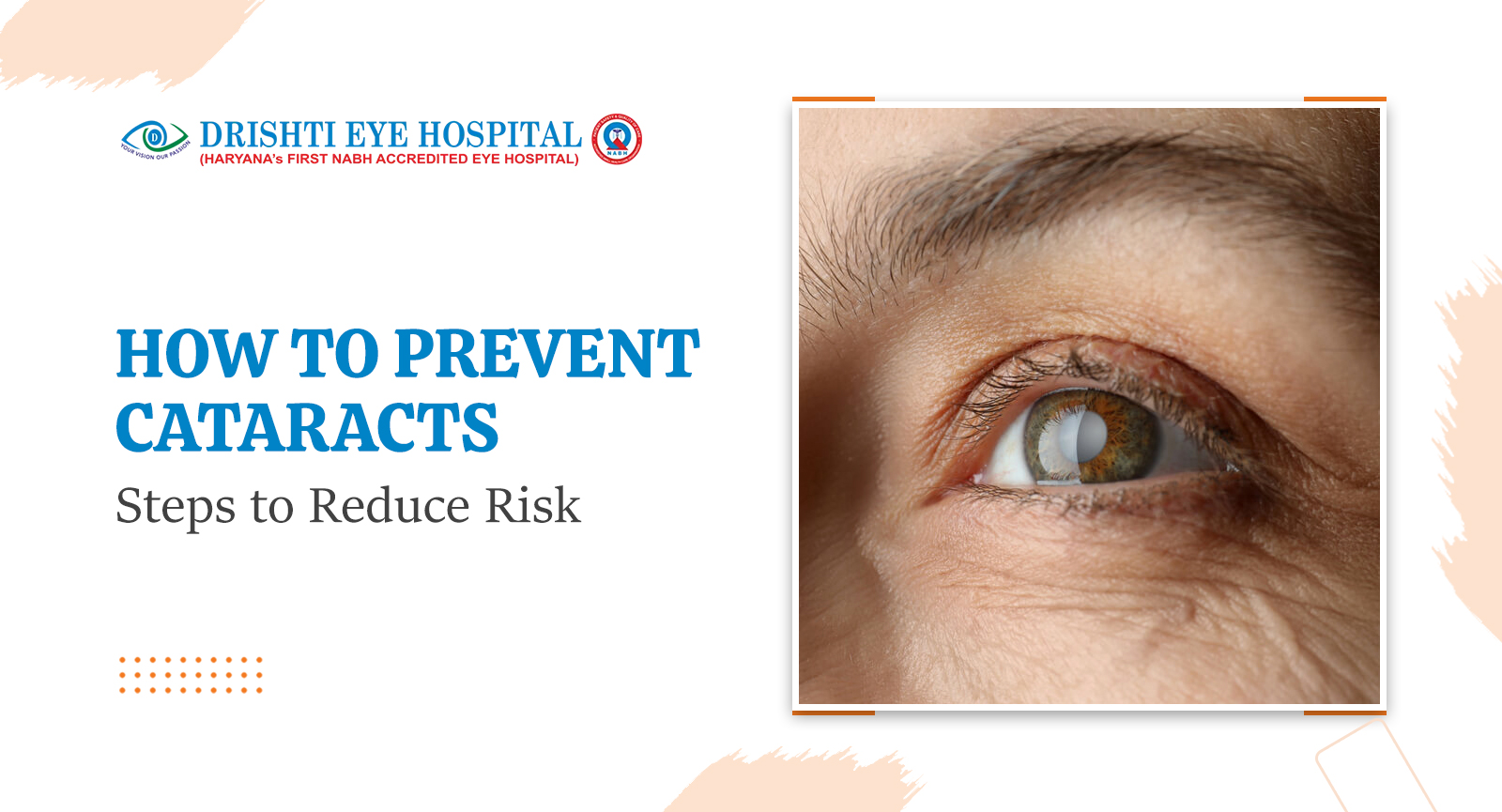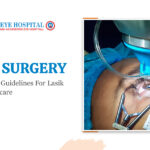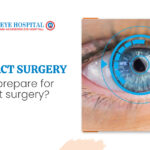Cataracts are a common eye condition that can lead to vision impairment, particularly as people age. They develop when the lens of the eye becomes cloudy, causing blurred vision, difficulty with glare, and in severe cases, blindness. However, cataracts can often be prevented or delayed with certain lifestyle changes and proactive measures. In this blog, we’ll explain how to prevent from cataracts. and more.
Here are steps you can take to reduce the risk of developing cataracts:
Protect Your Eyes from UV Light
Exposure to ultraviolet (UV) light from the sun is a significant risk factor for cataracts. To protect your eyes:
- Wear sunglasses that block 100% of UV rays whenever you are outdoors, even on cloudy days.
- Use a wide-brimmed hat to provide additional shade and reduce UV exposure.
- Consider UV-protective contact lenses if you wear contacts.
Maintain a Healthy Diet
A nutritious diet plays a crucial role in eye health. Certain vitamins and antioxidants can help reduce the risk of cataracts:
Vitamin C: Found in fruits like oranges, strawberries, and bell peppers, vitamin C has antioxidant properties that protect the eyes.
Vitamin E: Nuts, seeds, and leafy green vegetables are rich in vitamin E, which helps prevent oxidative stress in the eyes.
Carotenoids: Lutein and zeaxanthin, found in green leafy vegetables, eggs, and other foods, are known to support eye health and reduce cataract risk.
Avoid Smoking and Limit Alcohol Consumption
Smoking significantly increases the risk of cataracts, as it introduces harmful chemicals into the body that can damage the eye lens. Quitting smoking can not only reduce your cataract risk but also improve overall health.
Similarly, heavy alcohol consumption might lead to the formation of cataracts. Limiting alcohol intake to moderate levels (one drink per day for women and two for men) can help protect your eyes.
Manage Health Conditions
Certain health conditions can increase the risk of cataracts:
Diabetes: High blood sugar levels can cause changes in the eye lens, leading to cataracts. Managing diabetes through diet, exercise, and medication is essential.
High Blood Pressure: Keeping blood pressure under control can reduce the risk of cataracts and other eye conditions.
Regular Eye Exams
Regular eye exams are crucial for early detection and prevention of cataracts. During an examination of the eyes, an ophthalmologist can:
- Identify early signs of cataracts and recommend preventive measures.
- Monitor changes in your vision and adjust your prescription as needed.
- Provide tailored advice based on your individual risk factors.
Avoid Eye Injuries
Protecting your eyes from injuries can prevent traumatic cataracts. Take precautions to avoid eye injuries:
- Wear safety goggles when engaging in activities that could harm your eyes, such as woodworking, metalworking, or using chemicals.
- Use protective eyewear during sports that pose a risk of eye injury.
Stay Physically Active
Regular physical activity can help maintain overall health and reduce the risk of conditions like diabetes and high blood pressure, which are linked to cataracts. Aim for at least 150 minutes of moderate-intensity exercise, such as brisk walking, every week.
Control Light Exposure
Excessive exposure to bright lights, including artificial ones, can strain your eyes. Use appropriate lighting and take breaks to rest your eyes if you are working under bright lights or staring at screens for extended periods.
To Finish
While cataracts are a common part of aging, taking these preventive steps can significantly reduce your risk and promote overall eye health. Protecting your eyes from UV light, maintaining a healthy diet, avoiding smoking, managing health conditions, getting regular eye exams, preventing eye injuries, staying physically active, and controlling light exposure are all effective strategies. Apart from that, if someone is suffering from blurry eye vision then they may consult a doctor for cataract surgery.



